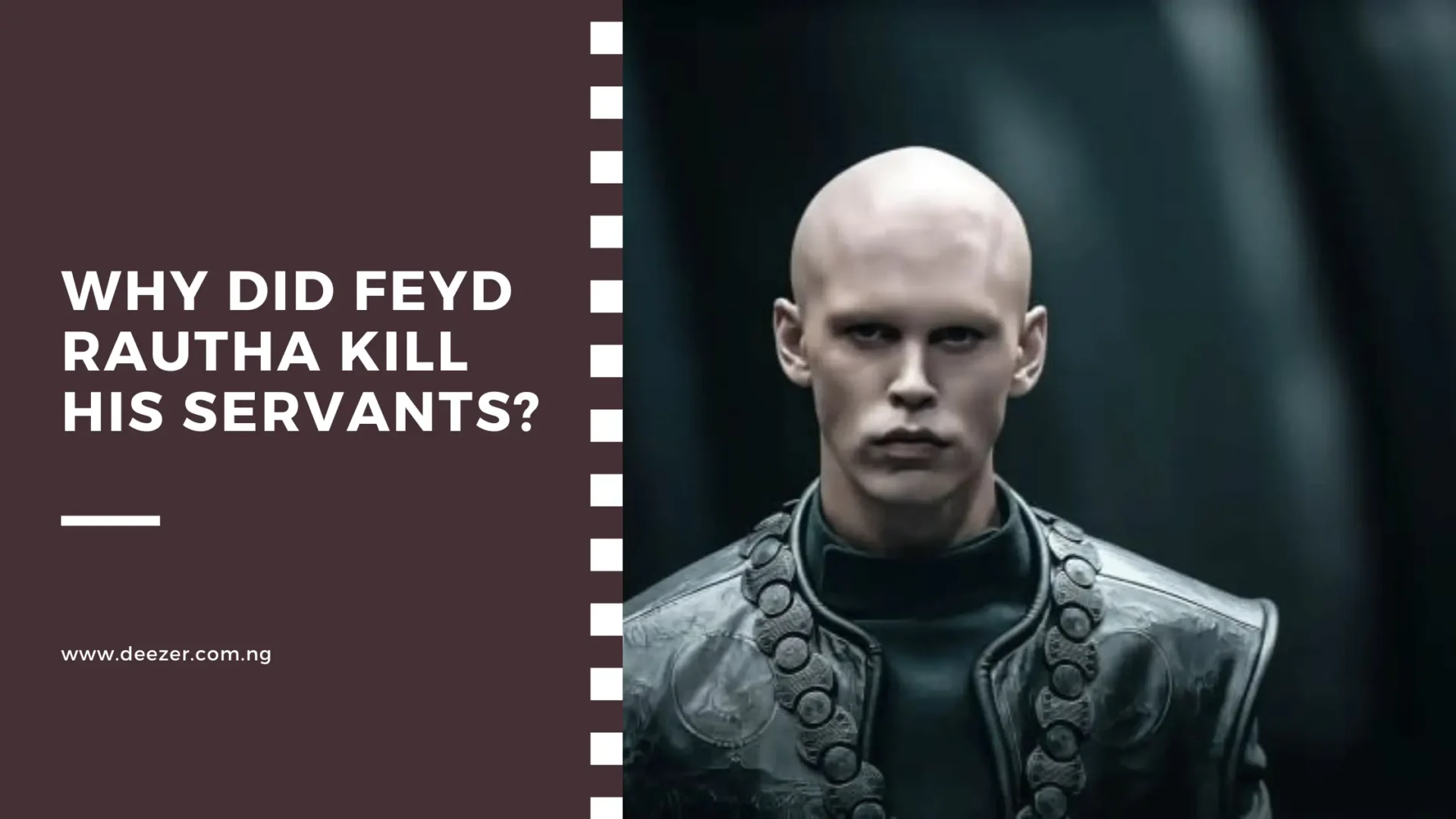Why Did Feyd Rautha kill His Servants? What Triggered Him?
Feyd-Rautha’s brutal killing of his servants is a chilling moment that sparks curiosity. What leads someone to commit such a violent act against their own loyal attendants? Is it a show of dominance, a burst of anger, or a strategic move to consolidate power? Read through to find out.

Understanding Feyd Rautha’s Character and Ambitions
A central character in the Dune series, Feyd Rautha Harkonnen is noteworthy for his ambition and ruthlessness. Feyd was the nephew of Baron Vladimir Harkonnen and grew up to be trained in ways of leadership by his uncle from a young age.
His early years in the cruel atmosphere spawned by House Harkonnen turned him hard, willing to do anything at all costs and brutal enough become ruler. The determination to rule that Feyd possessed, combined with his intelligence and strategy skills would have made him a terrifying adversary had he not constantly been planning (or scheming) against both allies and enemies.
Above all, it is a means by which he can showcase his power while ensuring that the Harkonnen name continues to move as an unstoppable force of deadly oppression and manipulation through fear.
Why Did Feyd Rautha kill His Servants?
Feyd-Rautha killed his servants simply to make a point: he was in control and powerful. Being a Harkonnen, he indeed subscribed to the adage of ruling through fear and brutal violence. By killing his servants, he passed the message down the line that he would not be threatened or double-crossed.
It also gave him the opportunity to destroy individuals who would expose his secrets and turn against him. Feyd-Rautha considered his vassals as dispensable, and he did not have feelings of loyalty or compassion towards them.
This violence showed the extent of his cruelty: ruthless and inhuman, which was a mark of time running through the hands of the Harkonnen masters of Arrakis.
The Role of Harkonnen Upbringing in Shaping Feyd’s Cruelty
Growing up the House of Harkonnen was integral to forming Feyd Rautha’s sadistic and unmerciful personality. Tutored by his cousin, Hof Emperor Baron Vladimir Harkonnen, Feyd was bred to inherit power with guile and treachery.
Aristocratic families were lost in their roots of oppression and brute force, as the strong preyed upon the weak so that cruelty might be considered power.
Having been born only two years before the Duke departed, Feyd was practically raised by his Harkonnen cousins and groomed to ensure that he would witness early on just what it took be a successful ruler in an empire like theirs: the subjugation of Arrakis’ people themselves and all of ruthless tactics used behind closed doors.
This led to Feyd turning into an individual who operated in such a way, and he had the compassion perceived as his greatest weakness replaced by utilizing violence as a necessary tool. His background teaches him to feel entitled and believe that people beneath them are dispensable.
Feyd-Rautha Display of Power and Control
Feyd-Rautha kills his servants merely to prove his ability and the concept of control. He shows that he is a violent character who seeks to conquer the world and destroy any obstacle in his path.
It is a warning to others, including his own house members and allies, that he will not be crossed or betrayed. The actions of Feyd-Rautha entail that he will not be mocked or have alse expectations cast upon him; he is a dangerous leader to which much fear is accorded by those around him.
This display of power and control signals a trademark of the Harkonnen’s reign on Arrakis and further institutes the Feyd-Rautha families’ brutal, oppressing ideology.
Power Dynamics and Control: Why Feyd Saw His Servants as Disposable
What it comes down to is that at a very basic level, the disposable nature of Feyd Rauga in relation his servant speaks more broadly and fundamentally about staking one’s dominance among this hyper violent world from the terror-striken brute power dynamics within House Harkonnen.
Growing up in an environment that was brutal and violent, Feyd knew early on the importance of showing strength to provide protection. He would beat Feyd’s servants, to make it clear that he was not one too be challenged so fear and servility wouldn’t become part of the behavior pattern.
It also fell in line with the larger Harkonnen worldview that people were expendable commodities, a piece of technology to be invented and then thrown away. For Feyd, killing or punishing servants was less about asserting power than it was reasserting why they were where he wanted them to be and how far the people around him might fall if any of you got in his way of getting even higher up on that ladder.
The Significance of Gladiatorial Combat in Feyd’s Actions
The events surrounding the gladiatorial combat in which he engaged were instrumental, for both entertainment and display of strength, crucial to shaping Feyd Rautha’s character. Feyd was good in them, strong and ruthless enough for them to serve as brutal demonstrations of his combat skills that further added luster to the young Harkonnen.
Through these fights, Fey become both an entertainer for the masses and a messenger of his own brutality; reminding everyone that House Harkonnen was in charge through fear.
To Feyd, the arena was a stage of strength featuring his dominance over mortality and echoing how he holds sway even on overpaid labour. The blood lust of the gladiatorial combat further drilled into his head that life was cheap and those beneath him deserved their fate. This sense of purity bled over into his treatment of his slaves and the people he considered lesser than.
Final Thoughts
In conclusion, Feyd-Rautha’s killing of his servants is a chilling manifestation of his ruthless ambition and desire for control. Through this brutal act, he demonstrates the depths of his depravity and the extremes to which he will go to maintain power and dominance.
As a member of House Harkonnen, Feyd-Rautha’s actions embody the family’s dark and oppressive values, and serve as a stark reminder of the dangers of unchecked power and corruption.
Ultimately, Feyd-Rautha’s actions foreshadow his own downfall, as his lust for control and dominance ultimately lead to his demise.






